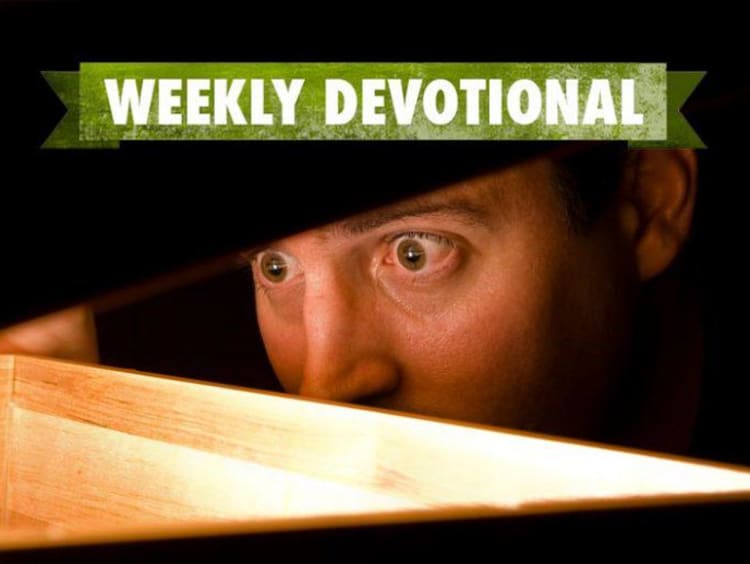Weekly Devotional: Treasure So Great

“The kingdom of heaven is like treasure hidden in a field. When a man found it, he hid it again, and then in his joy went and sold all he had and bought that field.” Matthew 13:44
What would you do to find a treasure? Rather, what wouldn’t someone do to uncover immeasurable riches? In pop-culture, it seems that the ends absolutely justify the means in cases like these. Movies including “National Treasure,” “Pirates of the Caribbean,” “Indiana Jones,” “Fools Gold,” “The Mummy,” etc. are only a few great adventures where the main character stumbles upon or spends his life searching for a treasure of undeniable value. This idea of finding treasure has been alluring minds since the first century.
In this instance, Jesus is speaking to the masses—travelers who have come from all over just to hear him teach. Jesus does not use this platform in the way everyone expected and instead spoke to the crowds in parables that concealed just as much as truth as they revealed. This enabled those who truly wanted to seek Him to understand while protecting those who just showed up to see what the hype was about from the weight of accountability His truths carried.
This parable about the kingdom would have especially resonated with the culture of the day when Jesus told it. There was a steep divide between the elite class and the general populous. Most people served as indentured servants in an agricultural-based economy working to maintain the property of a master or lord. In this case, it is presumed that a man showing up to his normal responsibilities of working a field just found a treasure. While it does not specify what form this treasure took, it is clear the man knew the value of it immediately. He then sells everything he owns, negotiates and purchases that piece of land from its owner, thereby becoming rich—set for life and free from his worries.
This story appeals to many. In two sentences, Jesus sums up one of the unspoken desires of every heart, but we must look a little deeper to see the enteral truth represented. It is saying that the kingdom of heaven, which is an eternity in perfect relationship with Yahweh the Lord of the universe, has immeasurable, insurmountable value. That this relationship is worth perceivably giving up everything that you have to acquire. This goes far beyond just material possessions and also represents surrendering the entirety of your life including your passions, dreams, work, days and relationships. So, is it worth the personal sacrifice?
In this parable it is hard to even consider selling possessions a sacrifice because what the man gains is incomparably better than anything he ever had before it. It is important to note that selling everything you have takes time. Presumably, the man was not able to acquire enough cash in a night to buy the field. Think of his family, friends, co-workers, community, and everyone that interacted with him at that time. They would have thought he was crazy and been concerned, until the day that he could reveal the treasure he had found.
As Christians, we are called to surrender the control of our lives, to give all of who we are and our resources to the Lord for His purposes. This will seem crazy to a world that does not see the value of the treasure you have obtained. The Apostol Paul, who was ultimately killed for the message of Christ, put it this way: “And if Christ has not been raised, your faith is futile; you are still in your sins” (1 Corinthians 15:17). But Christ did indeed rise! In fact, Romans says that the struggles we will endure in this lifetime are not even worth comparing to the glory that is coming.
So live each day gaining a great understanding of the treasure that you have as a believer in Christ and be on your guard, “For where your treasure is, there your heart will be also.” –Matthew 6:21
Grand Canyon University is committed to serving the Lord. To learn about GCU’s Christian identity and heritage, visit our website or request more information by using the button at the top of this page.
The views and opinions expressed in this article are those of the author’s and do not necessarily reflect the official policy or position of Grand Canyon University. Any sources cited were accurate as of the publish date.


